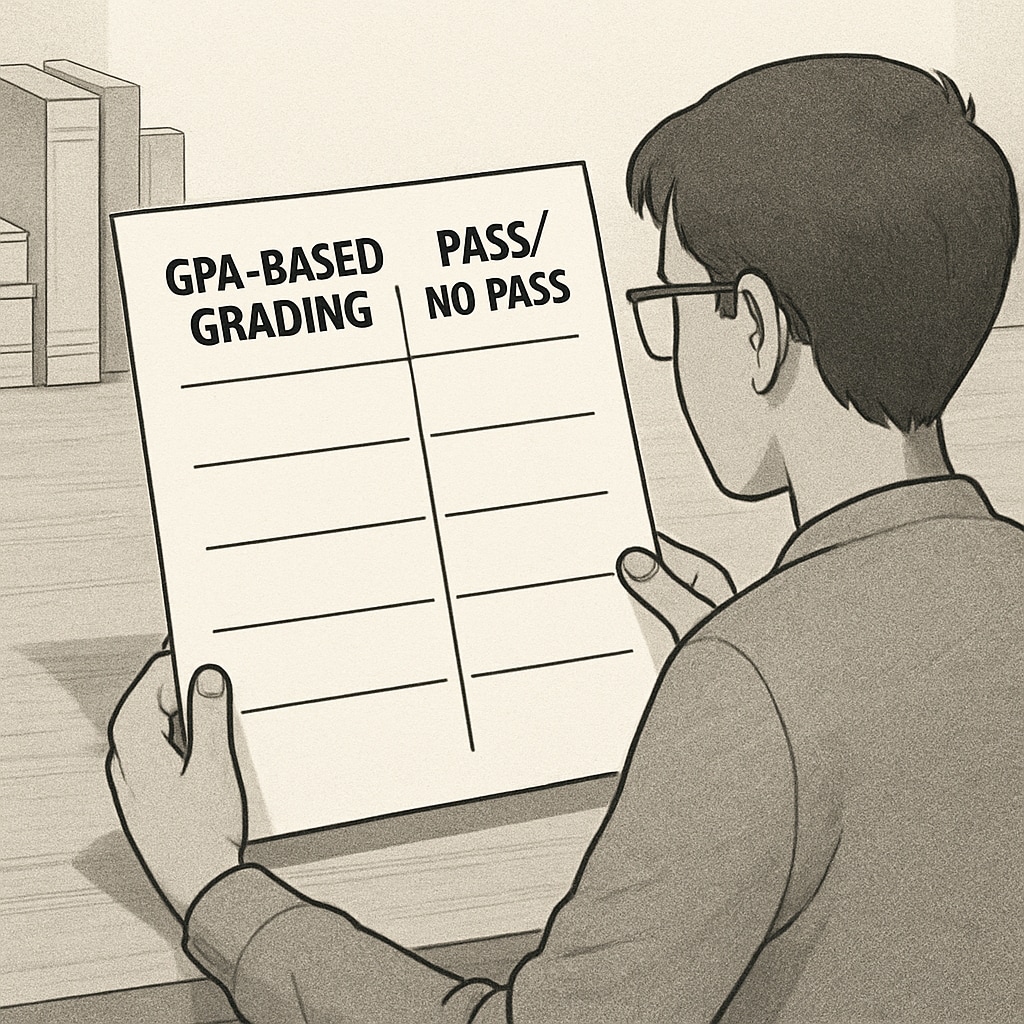For university students, choosing between GPA-based grading and Pass/No Pass (P/NP) systems can be a pivotal decision that influences their future career prospects. While the GPA system provides a numerical reflection of academic achievements, the P/NP option offers a less stressful alternative that focuses on completing a course rather than excelling in it. This article examines the benefits and drawbacks of both grading systems, their impact on career opportunities, and provides a decision-making framework to help students align their academic choices with their long-term goals.

The Role of GPA in Career Development
Grade Point Average (GPA) remains a critical metric in evaluating academic performance. Employers, graduate schools, and scholarships often use GPA as a benchmark to assess candidates’ skills, consistency, and commitment. For example, a high GPA can open doors for internships at competitive companies, graduate program acceptance, and merit-based financial aid. As such, students aiming for careers in industries like finance, law, or medicine—where precision and academic rigor are paramount—may benefit from prioritizing GPA-based courses.
However, GPA is not the sole determinant of success. Employers increasingly value soft skills, practical experience, and problem-solving abilities alongside academic performance. Therefore, while GPA is important, it should not overshadow other aspects of holistic personal and professional development.
Understanding the P/NP Grading System
The Pass/No Pass (P/NP) grading system offers students an alternative to the stress of maintaining a high GPA. In this system, a “Pass” reflects that a student successfully completed a course, while “No Pass” indicates insufficient performance. This option is particularly useful for electives or courses outside a student’s major, where the primary goal may be learning rather than excelling.
Choosing P/NP can also reduce academic pressure, fostering creativity and exploration in fields students might otherwise avoid. However, it’s essential to note that certain programs or employers may perceive P/NP grades as less rigorous, potentially impacting applications for competitive roles or graduate studies.

Balancing Academic Choices with Career Goals
When deciding between GPA-based grading and P/NP, students should consider their career aspirations. Here are key factors to weigh:
- Field of Interest: If your desired industry highly values academic excellence (e.g., STEM or law), GPA-based grades may be more advantageous.
- Stress Management: P/NP courses can provide relief during semesters with heavy workloads, allowing you to focus on core subjects.
- Graduate School Requirements: Research the GPA requirements of programs you’re interested in. Some schools may accept P/NP grades for electives but demand traditional grades for prerequisites.
- Long-Term Skills: If a course offers unique skills or knowledge crucial for your career, consider how investing in a GPA-based grade could reflect your commitment to learning.
Ultimately, students should view their grading decisions as part of a larger strategy to achieve their career goals, balancing academic performance with personal well-being and skill development.
Making an Informed Decision
To make informed decisions about grading systems, students can follow this framework:
- Identify your career goals and industries of interest.
- Evaluate the importance of GPA in your chosen field (e.g., through job postings or graduate program requirements).
- Consider your current workload and mental health to determine if P/NP would be beneficial.
- Consult with academic advisors or career counselors for personalized insights.
- Review the grading policies of your institution to understand limitations or implications of P/NP grades.
By carefully considering these factors, students can make choices that align their academic efforts with future success.
Conclusion: The Impact of Grading Choices on Career Prospects
The choice between GPA-based grading and P/NP systems is not merely an academic decision—it is a strategic career move. While GPA can enhance competitiveness in certain fields, P/NP may provide flexibility to explore interests and manage stress. By aligning grading decisions with career goals, students can navigate their academic journeys with confidence and purpose.
Remember, the ultimate goal is not just to achieve high grades but to build a strong foundation for lifelong success. Choose wisely, and let your academic path reflect your aspirations.
Readability guidance: Short paragraphs, clear transitions, and actionable lists are included to ensure clarity. Passive voice is minimized, and long sentences are limited.


